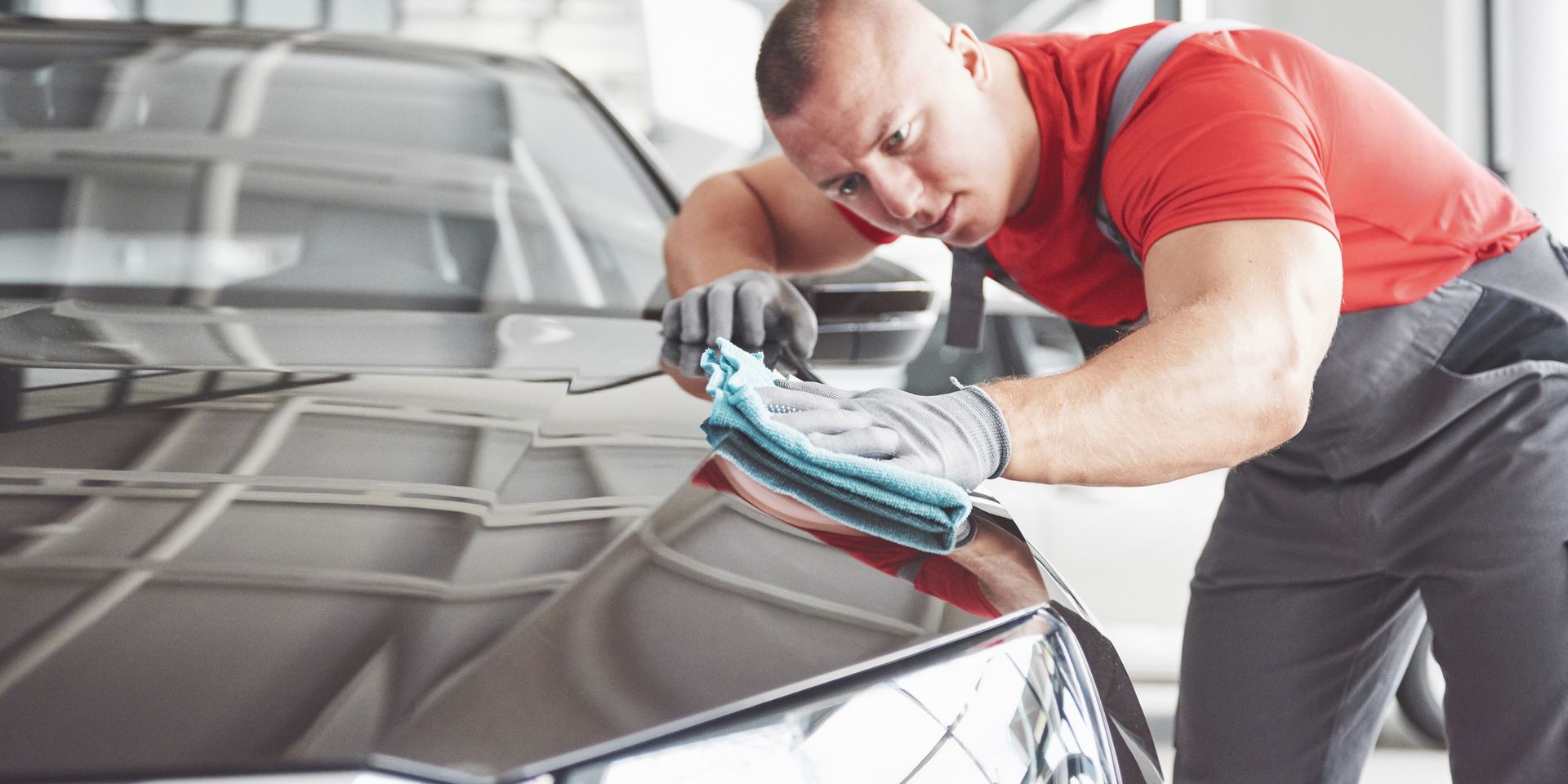The vehicle preparation technician knows cleaning and detailing products, understands which method to apply depending on the surface and condition of the car, and masters the key techniques of washing, polishing, and stain removal. They also know the limits of their scope of work and stop before any bodywork or mechanical intervention, which are handled by specialized workshop technicians.
Method and attention to quality
Their work is organized and consistent. Each preparation follows a clear sequence of steps. The technician inspects their work both up close and at a distance, correcting minor imperfections before a vehicle is displayed or delivered. They plan ahead, prepare their tools and materials in advance, and are capable of processing several vehicles in a day without sacrificing precision.
Safety and hygiene
They apply safety guidelines, wear the appropriate protective equipment, and always read product labels before use. They ensure proper ventilation, store and label containers correctly, and manage wastewater in compliance with workshop regulations.
Professional attitude and customer relations
Punctual, reliable, and discreet, they communicate effectively with the workshop manager, sales staff, and sometimes directly with the customer during vehicle delivery. They maintain a neat appearance, keep their workstation clean, and demonstrate a genuine sense of service, essential qualities for handing over a spotless car and earning the client’s trust.
Training and career entry
The job of a vehicle preparation technician is open to candidates without a specific diploma, although a technical background is a real advantage for understanding how a car functions and learning proper care techniques. Recruiters often value applicants holding a CAP in Vehicle Maintenance, a CAP in Bodywork and Painting, or a CAP in Cleaning and Hygiene, which cover professional cleaning and safety procedures.
For those who wish to specialize, there are professional certificates and qualifications in automotive detailing, paint correction, and vehicle aesthetics. Some dealerships and rental companies also offer in-house training focused on their specific cleaning protocols, products, and quality standards.
Temporary work agencies can support newcomers through hands-on assignments and skill-building programs that help them understand the sector’s expectations. A Category B driver’s license is generally required, as the technician must move vehicles within the workshop or storage area.
Curiosity, a desire to learn, and strict adherence to safety rules are key traits for progressing quickly toward more senior positions, such as team leader or professional detailer.
Salary of a vehicle preparation technician
At the start of their career, the salary usually aligns with the sector’s entry-level range and rises with experience, technical skills, and autonomy. Pay differences depend mainly on location, workload, and the employer’s market position. A generalist dealership typically pays the base rate, while a premium brand or a large used car center may offer higher fixed pay with quality or performance bonuses.
The overall package matters as much as the base amount. Two positions with the same salary can differ greatly depending on bonuses, meal vouchers, overtime, and performance incentives. In temporary work, end-of-mission bonuses like IFM and ICCP increase total earnings. When comparing offers, always check whether the amounts are quoted gross or net, and verify what’s guaranteed monthly.
Progression comes with versatility. Mastering advanced techniques, precise paint correction, showroom-level finishing, or protective treatments, as well as the ability to organize several preparations in one day, will naturally lead to higher pay. Over time, a skilled technician capable of training new recruits and ensuring final quality control can negotiate better conditions or take on a team leader role.
Career development opportunities
This profession offers strong prospects for growth within the automotive industry. After gaining experience, a preparation technician can become a team leader, supervising several colleagues within a dealership or used/new vehicle center. This position requires organization, attention to detail, and the ability to train and motivate others.
Some professionals choose to specialize in high-end detailing, where finishing standards are exceptionally high. This path includes advanced techniques such as paint correction, ceramic coating application, or interior leather restoration.
Finally, the role can serve as a springboard to other automotive careers. With solid product knowledge and client interaction skills, the technician may progress toward positions such as after-sales service advisor, vehicle delivery consultant, or even, in the long term, car sales representative.



